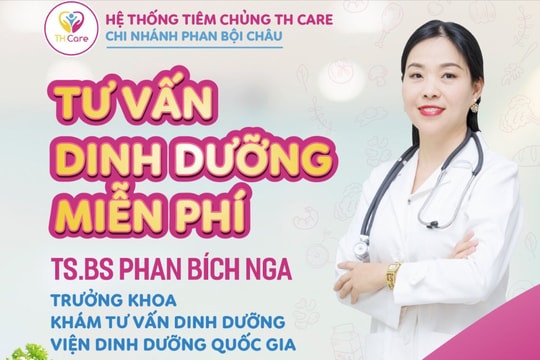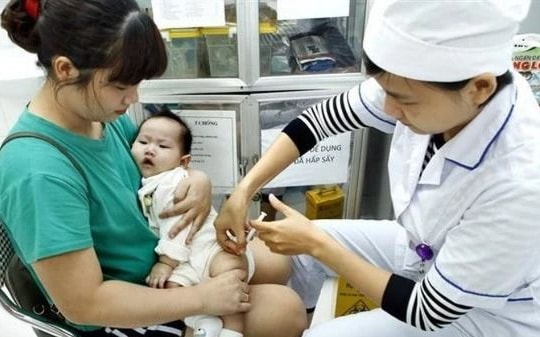Advance measles vaccination age for children
On January 18, a representative of the Expanded Immunization Program (EPI) said that there was a proposal to advance the measles vaccination schedule for children in high-risk areas. Accordingly, instead of 9 months to be vaccinated, children from 6 to 8 months old are eligible for vaccination.
Dr. Duong Thi Hong - Deputy Director of the National Institute of Hygiene and Epidemiology, Head of the National Expanded Immunization Office said that according to the national vaccination schedule, children are given the first measles shot when they are 9 months old.
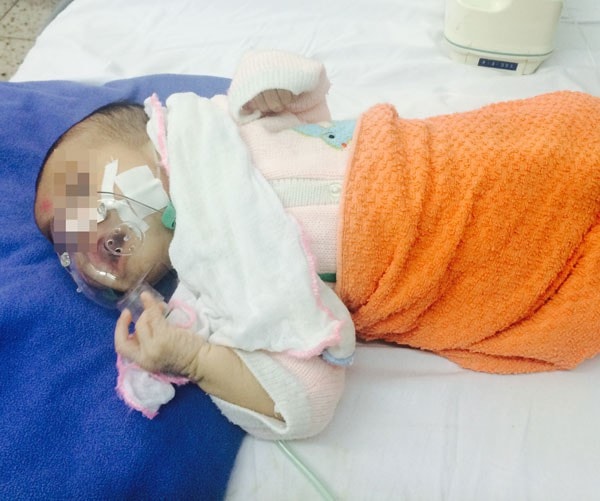 |
| Many children get whooping cough and measles before they are old enough to be vaccinated. |
Normally, children are well protected before the age of 9 because they have antibodies passed from their mothers to their children through breast milk. However, a recent clinical trial in Hai Duong showed that more than 92% of children aged 6-8 months do not have antibodies to prevent measles.
In fact, in recent times, there have been cases of children under the age of vaccination contracting measles, with a rate of about 3%, especially in the period 2016 - 2017, the rate of children with measles before the age of vaccination increased by 20%.
In 2017, Hanoi recorded 83 measles cases, one child death, of which nearly a third were children under the age of vaccination.
Therefore, in order to protect children from measles, the expanded immunization project proposed that the Ministry of Health allow measles vaccination for children 6-8 months old in areas at risk, when there is an epidemic to reduce the rate of measles in children who are not old enough to be vaccinated. According to calculations, vaccination at this age protects children by more than 88%.
Whooping cough vaccination recommended for pregnant women
Similarly, with the whooping cough vaccine, the EPI Program has also proposed to the Ministry of Health to expand the subject of whooping cough vaccination, specifically pregnant women.
“In 2017, we submitted a document to the Ministry of Health proposing to adjust the whooping cough vaccination indications, considering the indications for pregnant women. Only after the Ministry of Health gives permission can we make recommendations to the community,” said a representative of the EPI program.
Accordingly, studies around the world have also shown the safety of whooping cough vaccine for pregnant women. Vaccination during this period is to ensure that the mother has antibodies to whooping cough, after birth she will pass antibodies to her child through breast milk, helping the child not to get whooping cough while waiting for the vaccination age.
In fact, recently, many children have contracted whooping cough before reaching the age of vaccination, showing that the immunity passed from mother to child is very poor (because the mother does not have antibodies to the disease and has not contracted the disease).
In addition, in 2018, the TCMR project will also pilot hepatitis B vaccination within 24 hours after birth at home in a district of Lao Cai.
Vaccination will be carried out at the home of the new mother, by medical staff trained in vaccination practice, in mountainous districts because the new mother cannot carry her baby to the vaccination point.
It is known that the pilot project will be conducted in a district in Lao Cai. The district health center and the provincial general hospital will provide medical support and training so that medical staff can be better able to conduct screening at home.
“According to WHO recommendations, if a child is vaccinated against hepatitis B within 24 hours of birth and continues with the next three doses as scheduled, even if the mother is suffering from progressive hepatitis B, the child will be 95% protected against this disease. When comparing serum injection and vaccine, the effectiveness is equivalent, while serum injection is not recommended for use in the community,” said Dr. Hong.

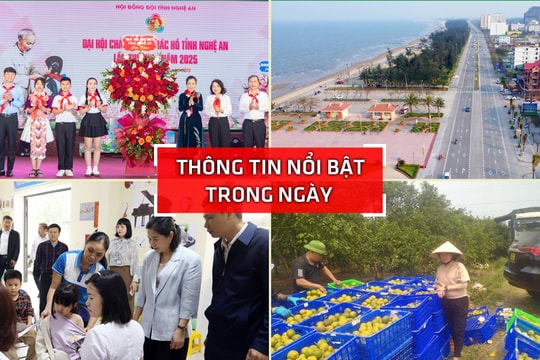
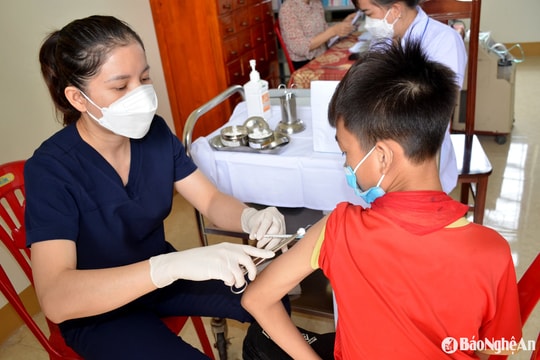
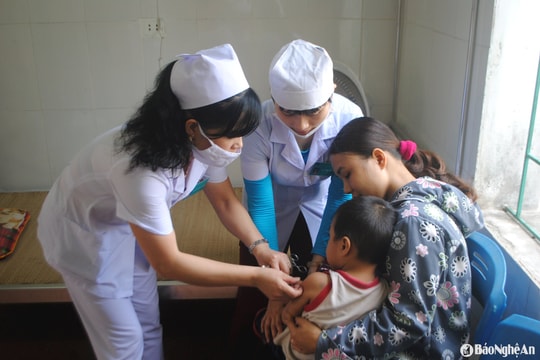
.jpg)
